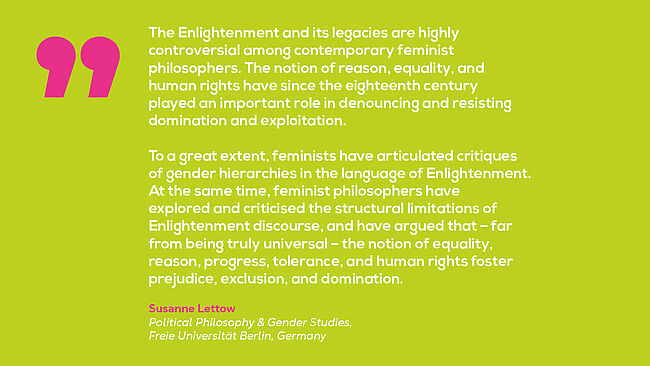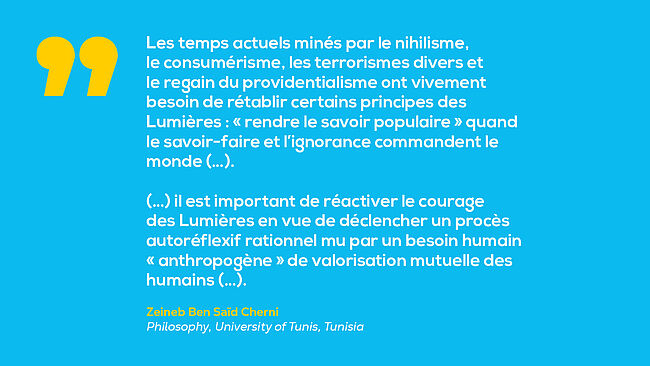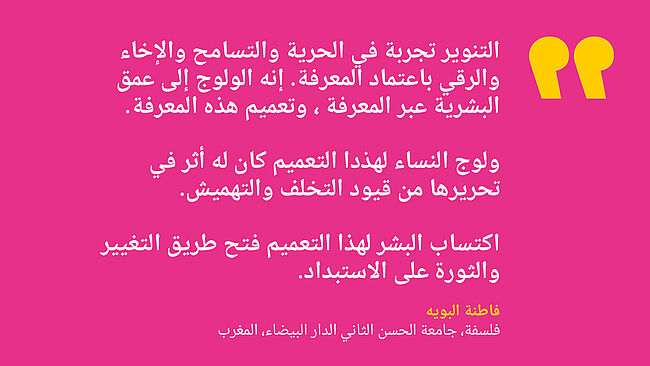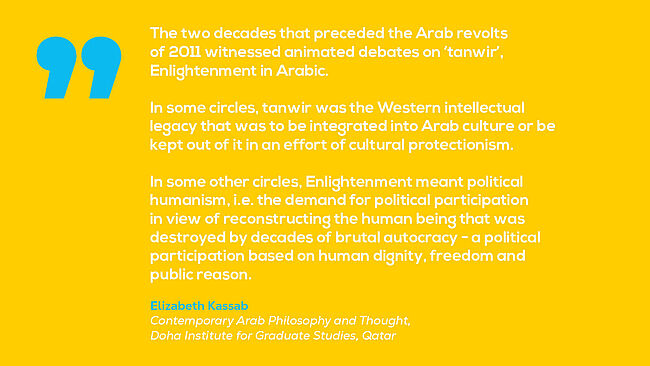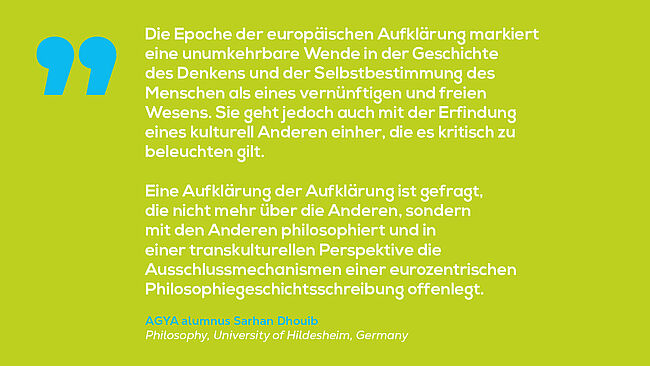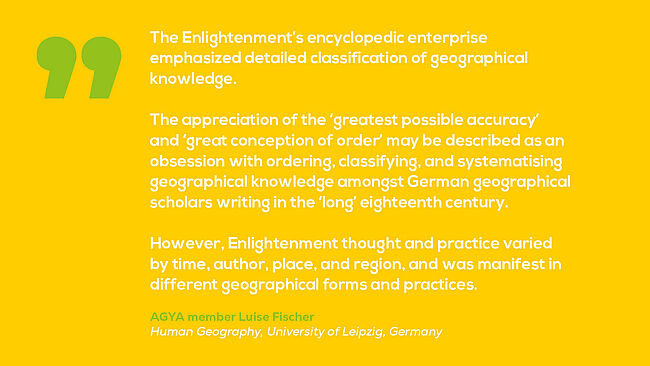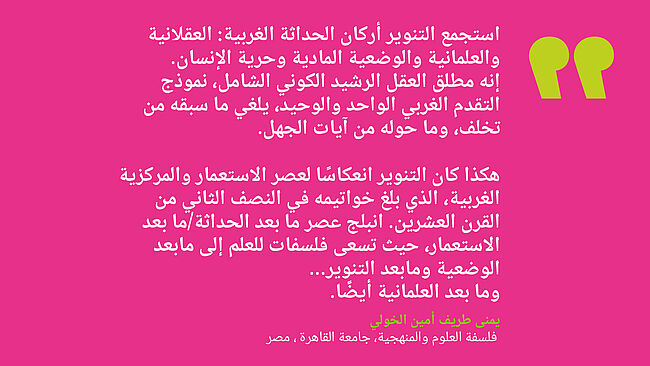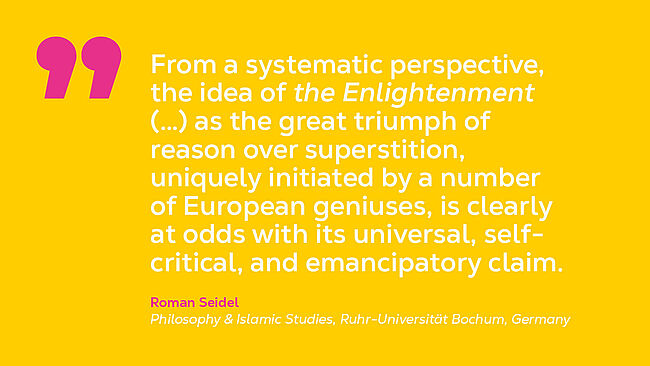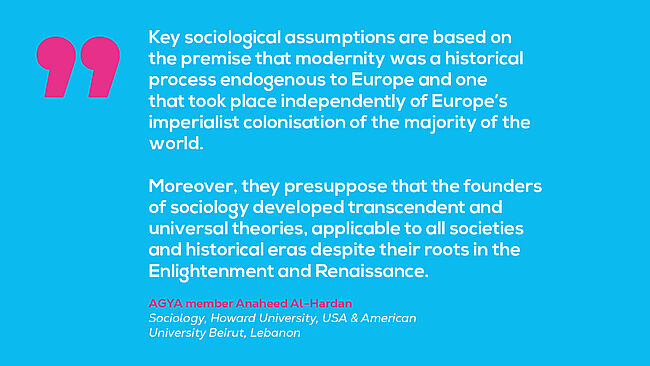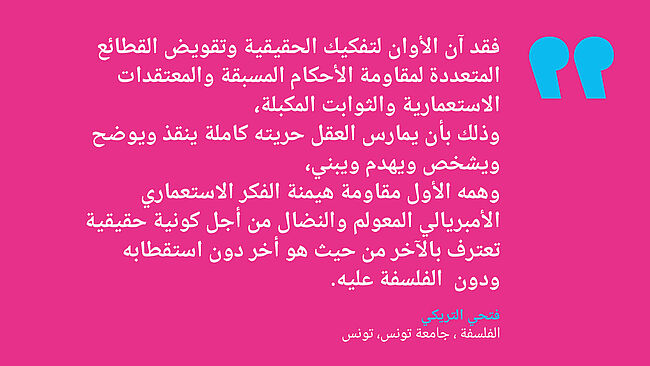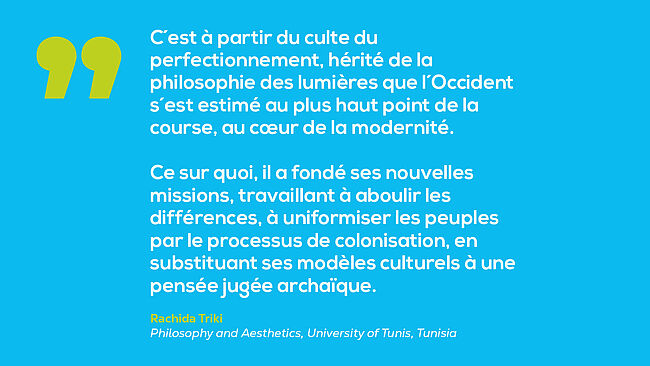Voices on Enlightenment(s)
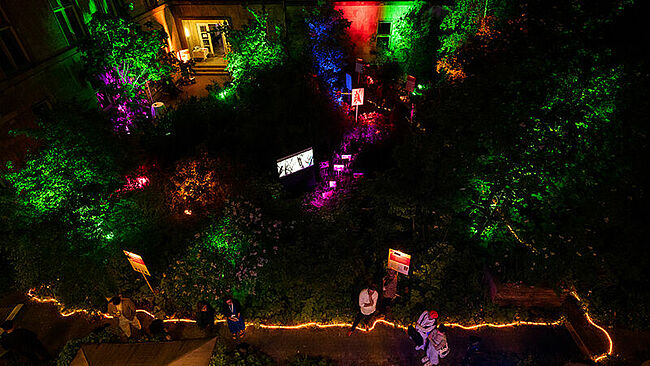
Arab-German Perspectives on Enlightenment
AGYA contributed to the BBAW Salon Sophie Charlotte 2023 on the topic ‘Enlightenment 2.0’ with a Science Walk through the BBAW garden. Part of the Science Walk was an audio installation, presenting a composition of various Arab and German voices on Enlightenment(s).
The ideas and concepts that emerged during the time of Enlightenment were predominantly based on the experiences and perspectives of European, male, property-owning thinkers. In recent years, there has been greater awareness of recognizing and valuing more diverse perspectives and experiences with a general emphasis on diversity as an important component of social, political, and intellectual life.
The Enlightenment discourse in the Arab region is reflected in the translation of Kant‘s works, the critical examination of his philosophy combined with a differentiated consideration of human rights, political, religious-philosophical, and feminist dimensions of the Enlightenment(s). The critical appreciation of the European Enlightenment is flanked by a rereading of its own classical and modern philosophical tradition.
This compilation of Arab and German statements on Enlightenment(s) was recorded for an audio station on the AGYA Science Walk at the Salon Sophie Charlotte 2023 featuring the topic ‘Enlightenment 2.0’. If you prefer reading to listening, you will find all quotes alongside their translations below.
Quote from:
Lettow, Susanne. Feminism and the Enlightenment. In: Ann Gary, Serene Khader, Alison Stone (Hg.): Companion to Feminist Philosophy. London und New York: Routledge 2017, p. 1. Read full article
"The current times undermined by nihilism, consumerism, various terrorisms, and the upsurge of providentialism have a strong need to restore certain principles of the Enlightenment: "to make knowledge popular" when know-how and ignorance control the world […].
[…] it is important to reactivate the courage of the Enlightenment in order to trigger a rational self-reflective process driven by an "anthropogenic" human need for the mutual valorization of humans […]."
Zeïneb Ben Saïd Cherni, Philosophy, University of Tunis, Tunisia
"Enlightenment is an experience of freedom, tolerance, fraternity, and progress through the adoption of knowledge.
It is access to the depth of humanity through knowledge and the dissemination of this knowledge.
Women's access to this dissemination of knowledge had an impact on liberating them from the shackles of backwardness and marginalization.
Human accomplishment of this dissemination paved the way for change and revolution against tyranny."
Fatna El Bouih, Philosophy, University of Hassan II Casablanca, Morocco
"The epoch of the European Enlightenment marks an inescapable turning point in the history of thought and the self-determination of man as a rational and free being. However, it also goes hand in hand with the invention of a cultural other, which needs to be critically examined.
An enlightenment of the enlightenment is called for, which no longer philosophizes about the others, but with the others, and in a transcultural perspective exposes the exclusion mechanisms of a Eurocentric historiography of philosophy."
AGYA alumnus Sarhan Dhouib, Philosophy, University of Hildesheim, Germany
Quote from:
Dr. Luise Fischer. “Geography and Enlightenment in the German states, c.1690 – c.1815” (PhD diss., University of Edinburgh, 2014, pp 177-178).
Enlightenment is a profound internal experience...
There is no point in talking at length about cultural, political, and economic institutions that call for enlightenment unless the individual is first liberated from the shackles he has been shackled by throughout history…
Enlightenment is a unique experience of consciousness and awareness…
It starts from the depths of the individual and spreads throughout the entire world…
And this is a difficult task…
The darkness of sterile thoughts will not be dispelled except slowly and quietly, and with depth and determination to emerge into the light…
And the shackles will not be broken except by an undefeated individual will…
And true determination to escape the darkness of ignorance and injustice…
That is enlightenment.
Safa Abdel Salam, Philosophy, Alexandria University, Egypt
"The Enlightenment was characterized by the adoption of the pillars of Western modernity: rationalism, secularism, materialistic positivism, and human freedom. It is the absolute, universal, rational, comprehensive mind, the one and only Western model of progress, eliminating the backwardness that preceded it, and the signs of ignorance surrounding it.
Thus, the Enlightenment is reflected in the era of colonialism and Western Centrism, which reached its conclusion in the second half of the twentieth century. The post-modern/post-colonial era has dawned, in which philosophies of science strive for post-positivism, post-Enlightenment... and post-secularism as well."
Yomna Tareef Amin El-Kholy, Philosophy of Science and Methodology, Cairo University, Egypt
Quote from:
Seidel, Roman. "Decentring the Grand Narrative of the Enlightenment: The Transregional Micronarrative of Mīrzā Āqā Khān Kermānī’s Writings in Global Intellectual History". Thinking the Re-Thinking of the World: Decolonial Challenges to the Humanities and Social Sciences from Africa, Asia and the Middle East, edited by Kai Kresse and Abdoulaye Sounaye, Berlin, Boston: De Gruyter, 2022, p. 159. Read full article
Quote from:
Al-Hardan, Anaheed. "Knowledge and Power in Sociology: Colonialism, Empire and the Global South". Thinking the Re-Thinking of the World: Decolonial Challenges to the Humanities and Social Sciences from Africa, Asia and the Middle East, edited by Kai Kresse and Abdoulaye Sounaye, Berlin, Boston: De Gruyter, 2022, pp. 111-112. Read full article
"The time has come to deconstruct the truth and to dismantle the multiple factions in order to resist prejudices, colonial beliefs, and restrictive principles. This is achieved through the mind exercising its total freedom to liberate, clarify, identify, destroy, and construct. Its first concern is to resist the hegemony of the globalized imperialist colonial thought and to struggle for a true universalism that recognizes the other for who he is as the other without changing or eliminating him."
Fathi Al-Triki, Philosophy, University of Tunis, Tunisia
Quote from:
Al-Triki, Fathi. “Philosophy of Everyday Life”, Mediterranean Publishing House, 2009, Tunis, p. 132
"It is from the cult of perfection, inherited from the philosophy of the enlightenment that the West considered itself on the highest ground, at the heart of modernity.
On this, it based its new missions, working to abolish differences, to standardize peoples through the process of colonization, by substituting his cultural models for a thought judged as archaic."
Rachida Triki, Philosophy and Aesthetics, University of Tunis, Tunisia
Date and Venue
13 May 2023
Salon Sophie Charlotte 2023
Berlin-Brandenburgische Akademie der Wissenschaft, Berlin, Germany
Concept: Faouzia Zeraoulia & Sarhan Dhouib
Realization: Marcel Al-Theb-Hnidy, Sabine Dorpmüller, Sebastian Fäth, Nermine Fattouh, Peter Konerding, Jonas Reiche-Weiland, Maria Röder-Tzellos, Christine Rollin
